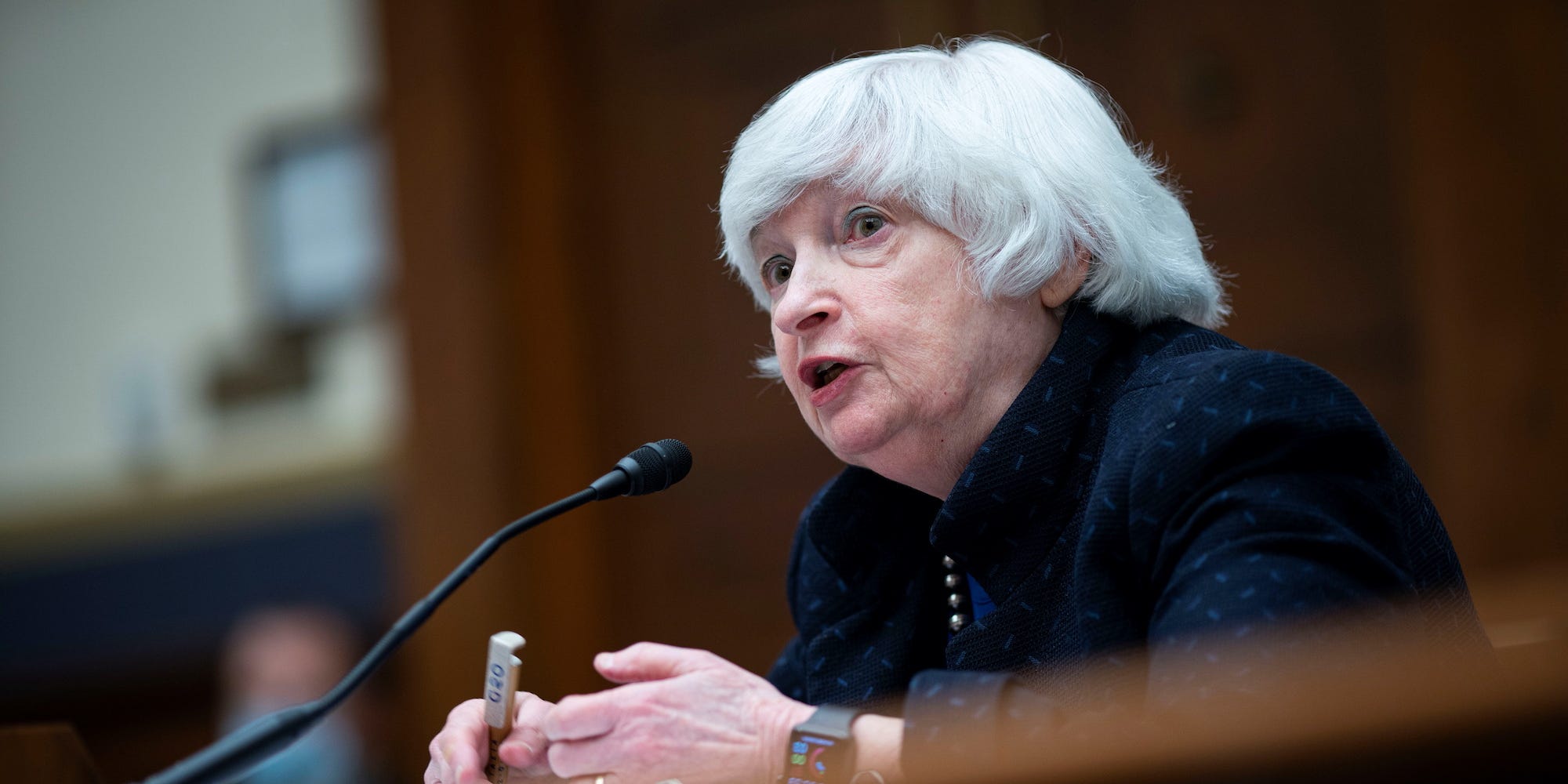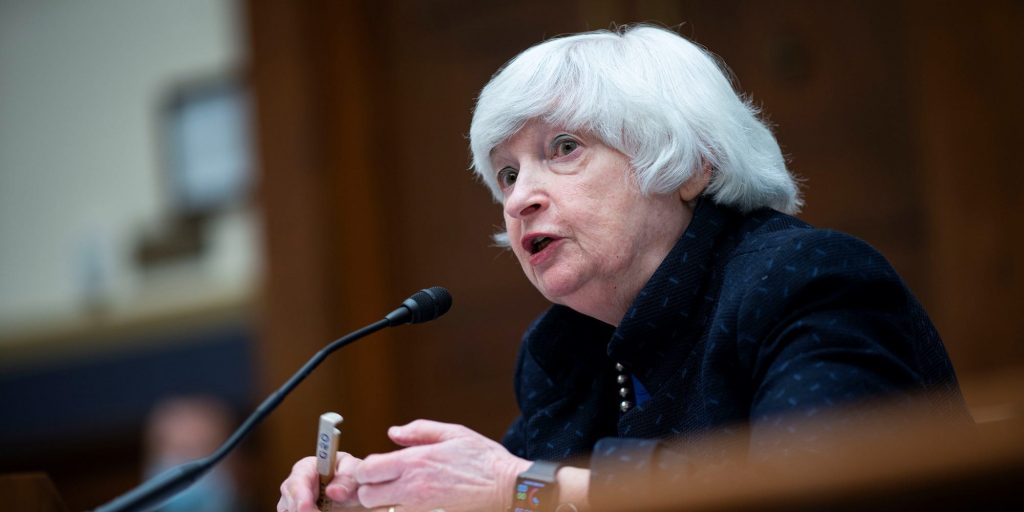
- Congress has until December 15 to raise the limit on how much the government can borrow, Tres. Sec. Janet Yellen said Tuesday.
- That's slightly later than the original December 3 deadline, but still gives lawmakers less than a month to find a solution.
- Democrats and Republicans are at odds over lifting the ceiling. Failure to do so risks an economic recession.
Congress has less than a month to once again raise the debt ceiling and dodge a ruinous economic disaster.
The US will be unable to pay its bills past December 15, Treasury Secretary Janet Yellen said in a Tuesday letter to Congress. That gives lawmakers slightly more time to raise or suspend the limit on government debt, as Yellen's prior forecast had the US hitting the ceiling on December 3.
"While I have a high degree of confidence that Treasury will be able to finance the US government through December 15 … there are scenarios in which Treasury would be left with insufficient remaining resources to continue to finance the operations of the U.S. government beyond this date," Yellen said.
Those "scenarios" can come to fruition if Congress doesn't act quickly. The ceiling dictates how much the government can borrow to cover its expenses. Hitting the limit would risk a government default and plunge the country into an unprecedented economic crisis.
Lawmakers have raised or suspended the debt limit 79 times since 1960, and typically on a bipartisan basis. Yet the latest spat earlier in the fall showed the GOP unwilling to lend its support this time around. Senate Republicans led by Minority Leader Mitch McConnell argued raising the limit would open the door for Democrats' spending plans.
Democrats, however, maintain raising the debt ceiling is a bipartisan responsibility. Lifting the limit allows the government to pay the bills for spending that's already happened, and some of the outlying bills cover spending under President Donald Trump.
Debt ceiling standoff déjà vu
Congress passed a two-month lift of the debt limit in October, but McConnell has said Republicans won't offer such help again. Congress will "figure out how to avoid default, we always do," the minority leader said in a Tuesday press conference.
But with Democrats still pushing for a bipartisan solution, a quick fix is unlikely to arrive.
"I would hope that my Republican colleagues understand that it would be unbelievably irresponsible to hurl the entire economy into chaos by not paying the debts that were incurred under the Trump administration," Sen. Bernie Sanders told reporters Tuesday. "We're looking at all the options, but this country cannot fail to pay its debt."
More partisan options do exist if Democrats pivot and look to raise the ceiling on their own. Using the reconciliation process would allow the party to lift the limit without any Republican support in the Senate.
Democrats have been wary of pushing reconciliation, arguing it absolves the GOP of its responsibility in avoiding default. Yet Yellen recently warmed to the option. The treasury secretary said earlier in November that reconciliation is a "viable route," and certainly preferred to hitting the limit in December.
"Should it be done on a bipartisan basis? Absolutely. Now, if they're not going to cooperate, I don't want to play chicken and end up not raising the debt ceiling," Yellen told The Washington Post. "I think that's the worst possible outcome."
The stakes couldn't be higher. Running into the limit would erase pay for federal workers and halt Social Security payments. Financial markets would almost surely plummet as investors flee risky assets. The US's borrowing costs would skyrocket.
The country would face "a financial crisis and economic recession" while it's still recovering from the pandemic, and its currency strength would be permanently scarred, Yellen said in September testimony to the Senate Banking Committee.
"I can't think of anything more harmful to the role of the dollar than failing to raise the debt ceiling," she added.

